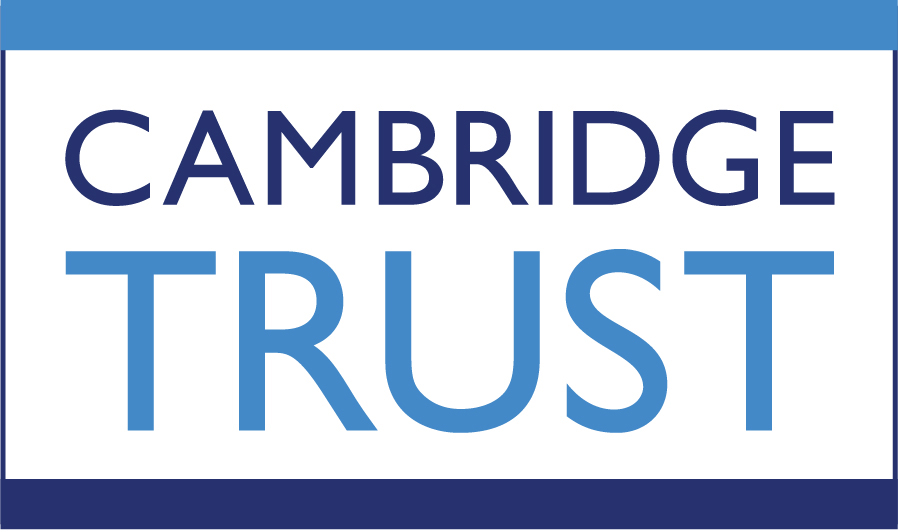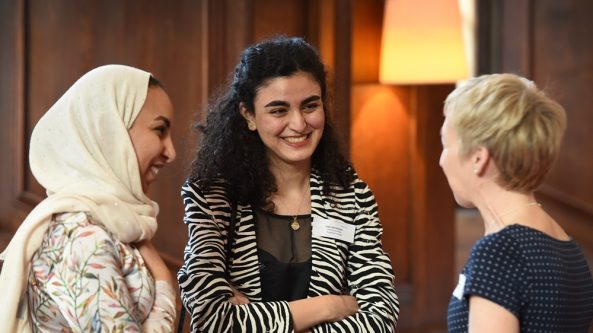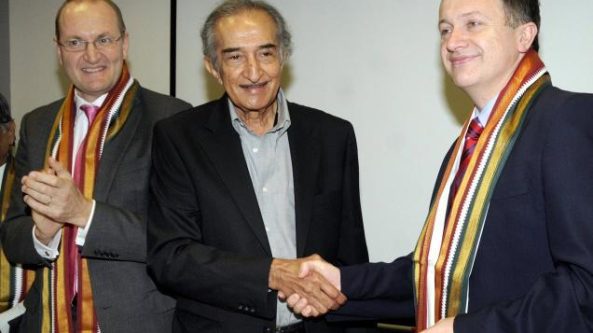From Nepal to Cambridge to international lawyer working to create a fairer world
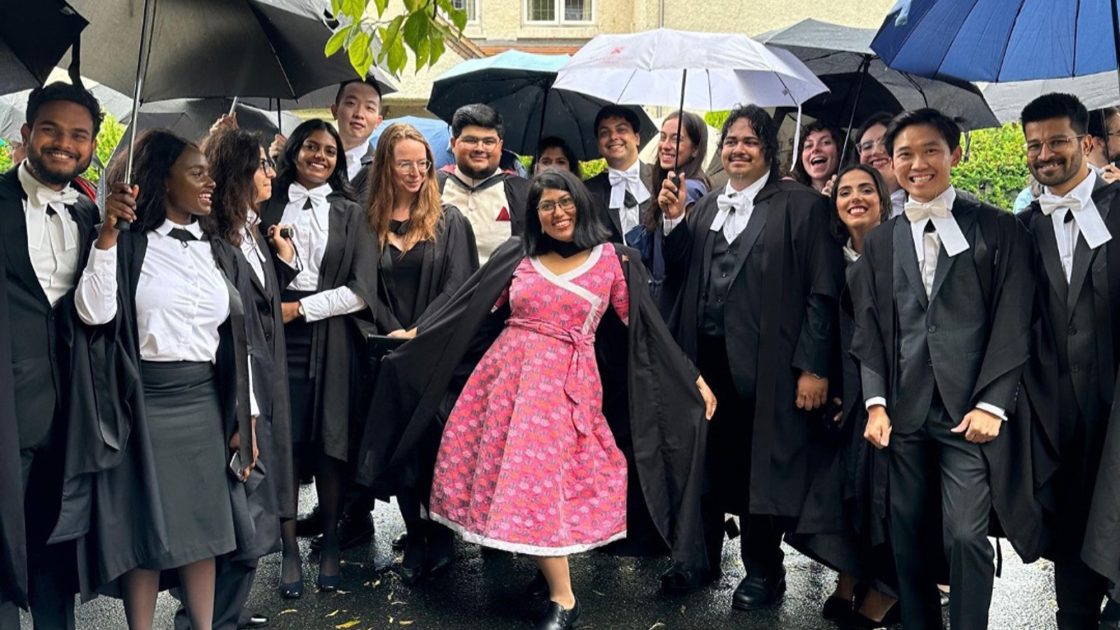
Recently graduating from Wolfson College with a Masters of Law, Chevening and Cambridge Trust alumna Shreya Joshi tells us how her time at Cambridge changed her life. And what advice does she have for students following in her path?
Tell us about your background and your life before coming to study at the University of Cambridge
I grew up in the Kathmandu valley of Nepal, surrounded by mountains not meant to be conquered but cherished. They watched over me, teaching a quiet strength and a lasting sense of humility. I come from a family of teachers and writers, so academic excellence was never exactly negotiable. Fortunately, I found early on that I genuinely enjoyed reading, writing, and learning. It never felt like a chore.
By the time I was a teenager, I was contributing to national newspapers and had written a children’s fantasy novel. Writing naturally evolved into debating, and debating into law. High school debates, which often started at school and continued animatedly at the dinner table, steered me toward law school, with a vague but persistent ambition to eventually enter politics.
At university, I competed in debates both nationally and internationally. Yet the most formative debates were always the ones with friends and family, where we would argue governance systems, capitalism, patriarchy, and everything in between. These arguments did not end with trophies, but they definitely shaped how I viewed the world.
It was this relentless curiosity, combined with an urge to understand capitalism through the eyes of a lawyer and a quiet but determined hope to leave the world better than I found it, that eventually led me to the University of Cambridge.
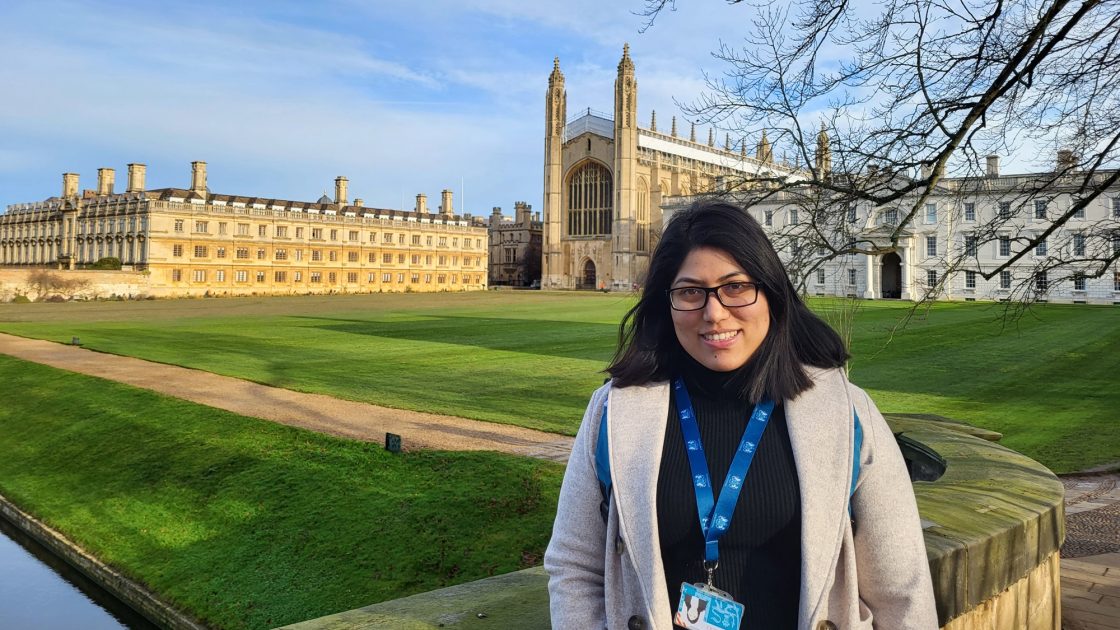
What has your time at Cambridge enabled you to do on a personal level, professionally and as part of your community?
If you grow up reading Harry Potter, Cambridge feels almost suspiciously familiar! Large halls, ancient libraries, and conversations that shift from medieval poetry to quantum mechanics over the course of a single dinner. It was surreal.
In a moment of adventurous spirit, I took up rowing and became a coxswain. Racing with my Wolfson College team under the guidance of top coaches along the River Cam remains one of my greatest memories, and a reminder that leadership is also forged at the helm, not tucked away in a courtroom.
Cambridge gave me much more than a degree. It gave me the confidence to step into any room and face any challenge without flinching. It gave me a network of friends scattered across every continent, each pursuing remarkable paths of their own.
Cambridge reaffirmed that even within the oldest institutions, passion and creativity are not only welcome, they are necessary. The world remains a remarkable place precisely because there are still people quietly building something magical every day.
On a personal level, Cambridge taught me humility. There are thousands of smart, driven people pursuing their passions and you learn quickly that the smartest thing you can do is listen.
Professionally, Cambridge gave me the rare chance to learn from professors whose ideas did more than teach law; they challenged me to question it, to critique it, and to imagine how it might better serve the world.
Their mentorship continues to shape my work in arbitration, both in substance and in spirit.
What would you like to pursue next on your professional journey?
I come from a country where revolutions are not merely historical vestiges but lived memories. I saw a monarchy fall and a republic rise. I saw people willing to fight and die for freedom. Those experiences left me with an unshakable belief that real change is possible if we are brave enough to fight for it.
Today, I practice as an international arbitration lawyer. In the future, I hope to serve as a judge. I want to interpret the law not as an abstract set of rules, but as a living instrument for justice and freedom.
My ambition is simple. I want to help create a world that is freer, fairer, and more humane. Law is my chosen tool, but the deeper mission is to remain an advocate for freedom.
What advice would you give to anyone considering applying to Cambridge with support from the Cambridge Trust?
First off, if you’re even thinking about it, you’re probably the kind of person who should apply. I got to Cambridge thanks to being awarded a Chevening/Cambridge Scholarship. without which Cambridge may well have remained a distant dream.
My advice? Get serious early. Understand what your course and the scholarship demands of you. Write your essays like you are telling your story to someone who needs to believe in you, because they do. Don’t dress it up; be raw, be persuasive, be unapologetically you.
And if you don’t succeed the first time? Try again. Dreams are stubborn things and luckily, so are smart, determined people.
About the Chevening/Cambridge Scholarship
This scholarship is available to Masters applicants from countries in which Chevening Scholarships are awarded. It is tenable at any College.
Visit the Chevening/Cambridge Scholarship page to find out more and apply.
